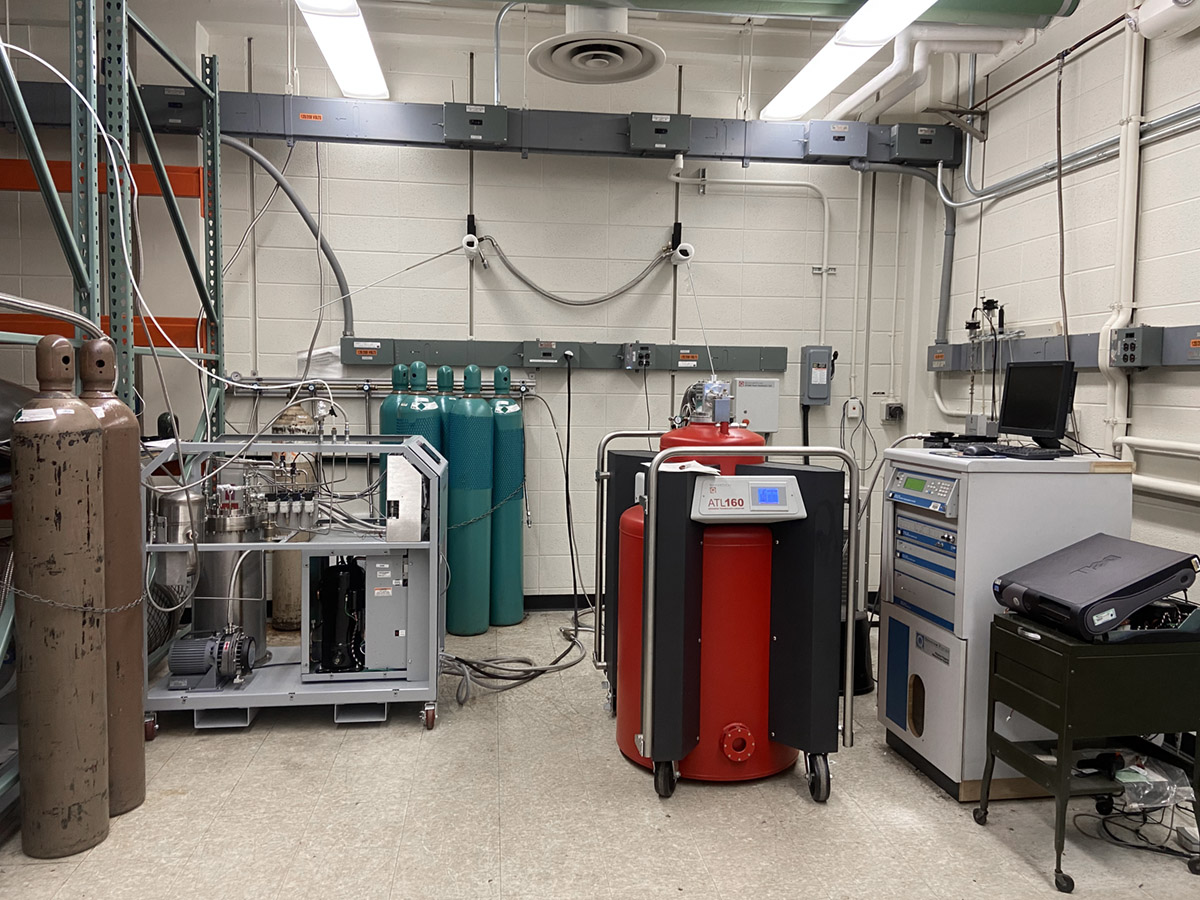Instruments
Quantum Design Magnetic Property Measurements System (MPMS-3)
A Quantum Design SQUID Magnetometer with Ever Cool closed cycle refrigerator has six different measurement modes (traditional/DC mode, AC mode, VSM mode, high-temperature mode, conductivity/hall effect mode and rotator mode) is used to characterize magnetic and magneto-transport properties of materials, enabling applications such as energy conversion/storage, catalysis, magnetic metamaterials, chirality in biological systems, magnetic nanoparticles, biomedicine and drug delivery, unconventional superconductivity and multiferroics, among others.
Functions
- High sensitivity ac/dc magnetic susceptibility measurements within the 2K-1000K temperature range and a broad frequency range
- Magnetization – temperature dependence measurements within the 2K-1000K range
- Magnetoresistance measurements within the 2K-400K range
- Hall effect measurements within the 2K-400K range
- Angular (Theta, Phi) dependence measurements
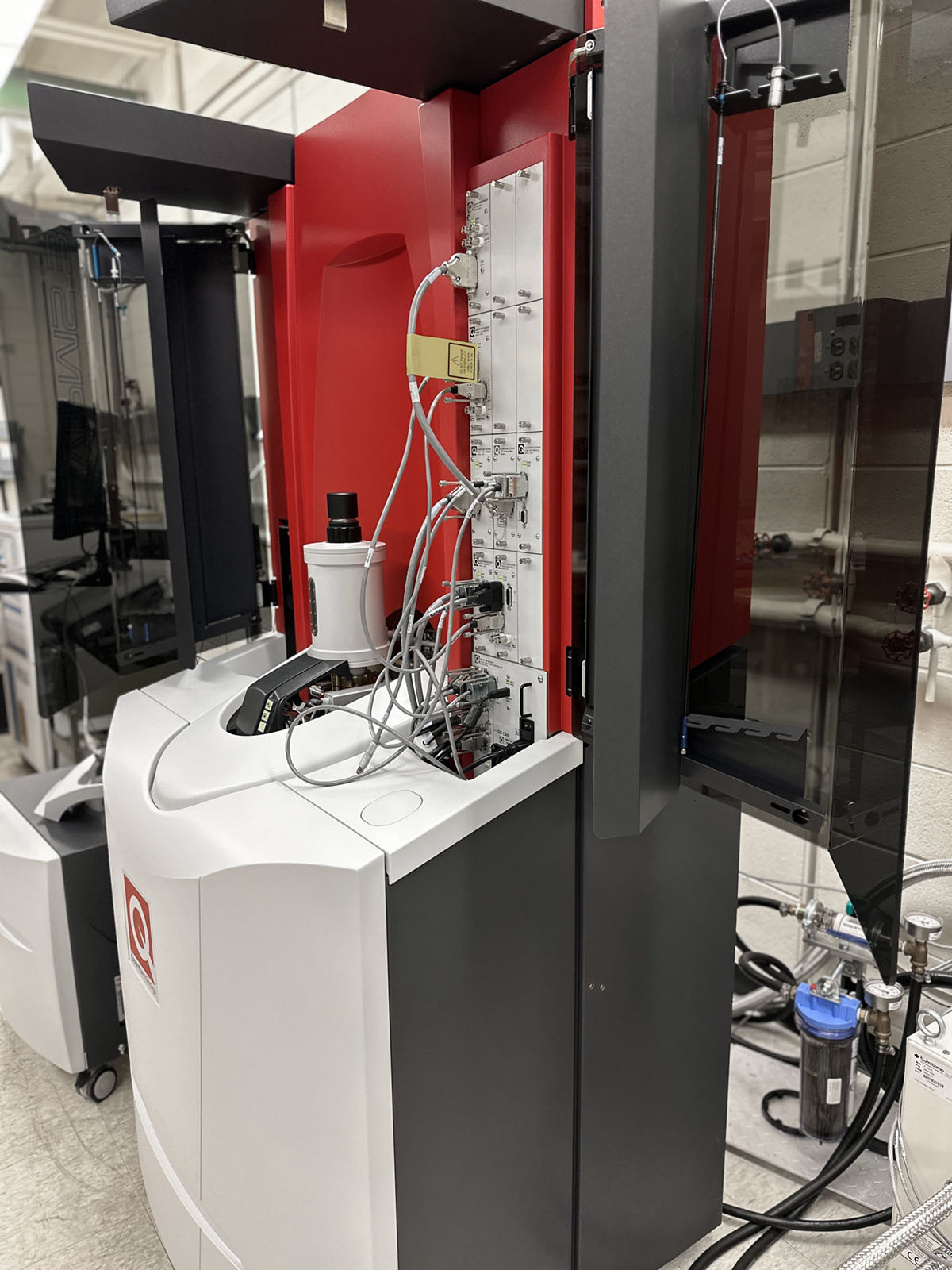
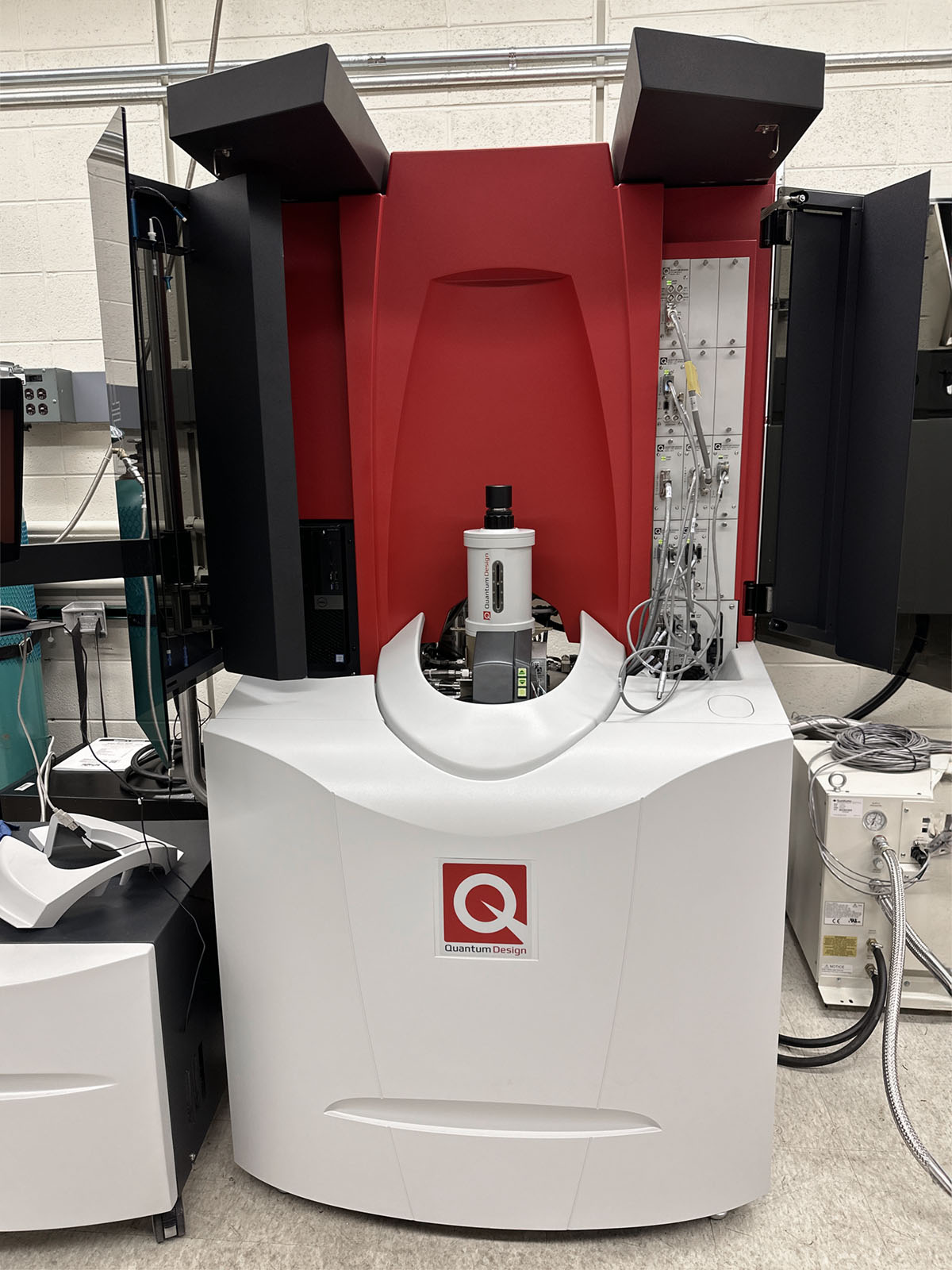
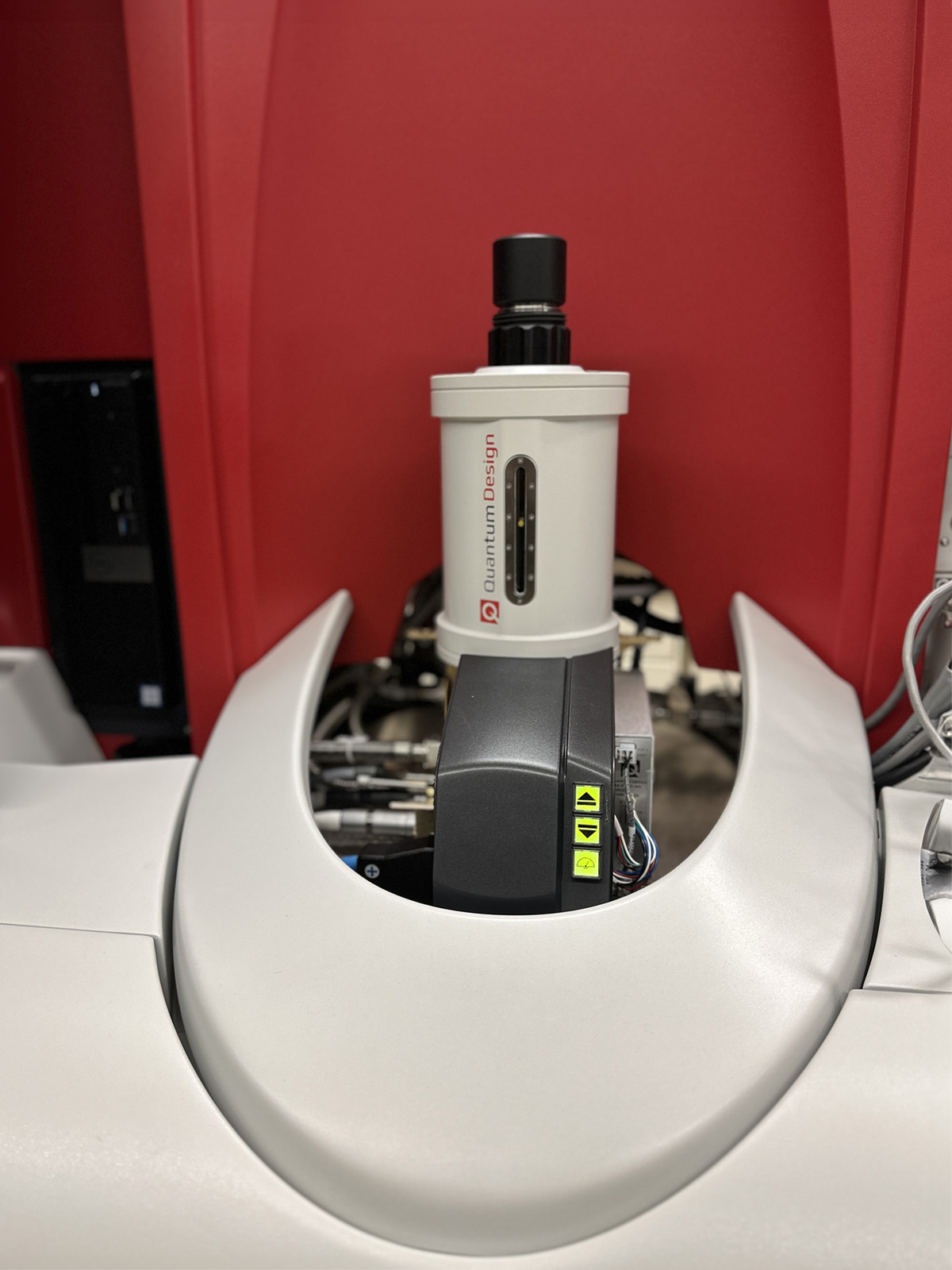
Rates
| Type | Academic rate | Industry rate |
|---|---|---|
| Training/staff-assisted measurements | $60/hr | $130/hr |
| Hourly service | $12.50/hr | $70/hr |
| Daily service | $150/day | $700/day |
Contact information
Location
Physics Research Building, Room 384
Physical Properties Measurement System (PPMS)
A Quantum Design Physical Properties Measurement System (PPMS) has several measurement modes in the temperature range of 2K-400K.
Functions
- AC/DC magnetization measurements
- Resistivity
- Hall Effect
- Magnetoresistance
- Heat capacity
- Thermal conductivity
- Seeback coefficient and the figure of merit ZT
- Dielectric susceptibility
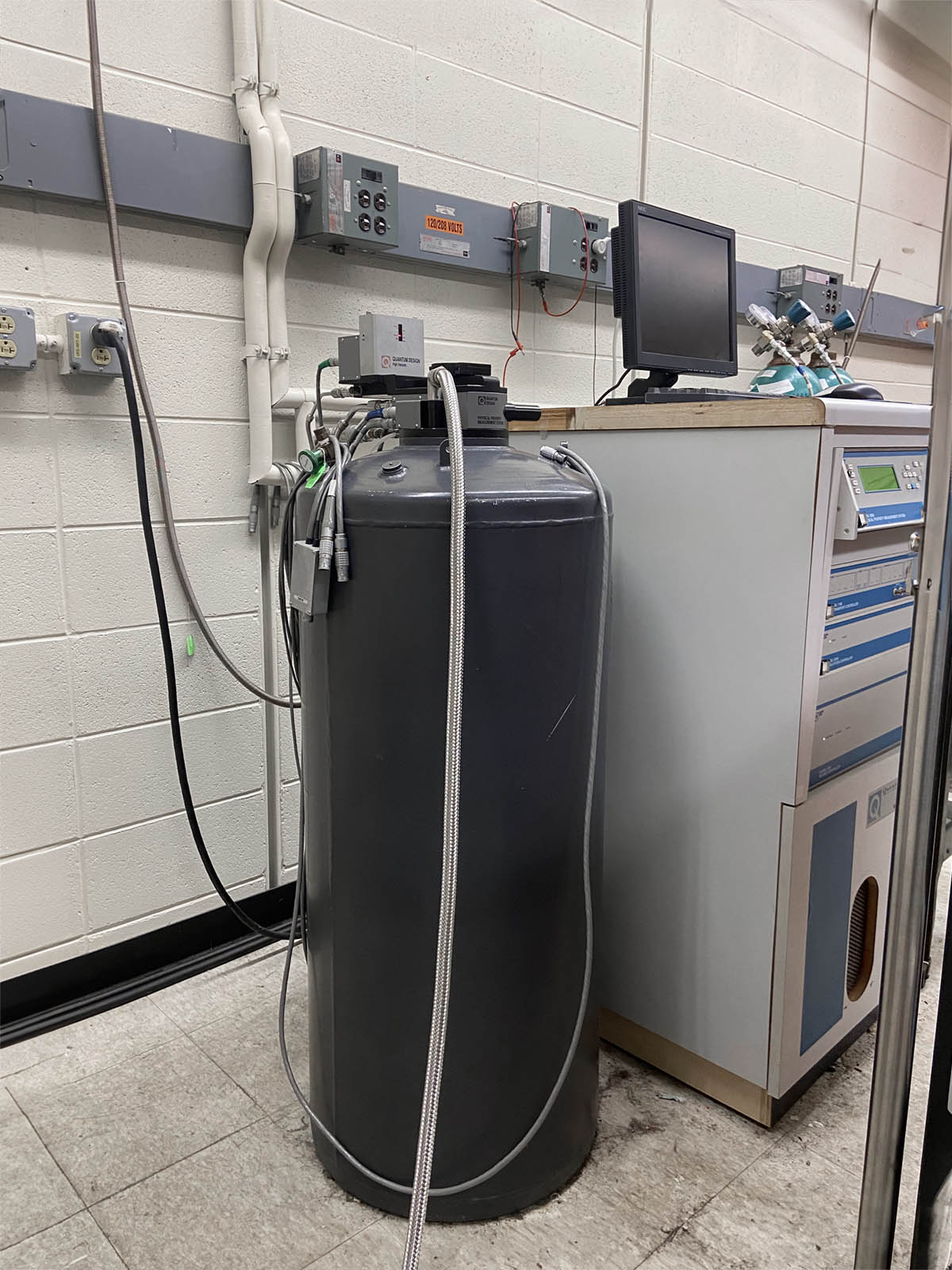
Rates
| Type | Academic rate | Industry rate |
|---|---|---|
| Training/staff-assisted measurements | $60/hr | $130/hr |
| Hourly service | $12.50/hr | $70/hr |
| Daily service | $150/day | $700/day |
Contact information
Location
Physics Research Building, Room 384
JEOL 6610 LV Scanning Electron Microscopy (SEM) and NPGS Electron Beam Lithography
Functions
- High-resolution imaging capabilities, allowing for detailed visualization of sample surfaces at magnifications ranging from 10x to over 300,000x
- Elemental analysis with Energy Dispersive X-ray Spectroscopy (EDS, Oxford) and Wave Dispersive X-ray Spectroscopy (WDS, Oxford)
- Electron beam lithography
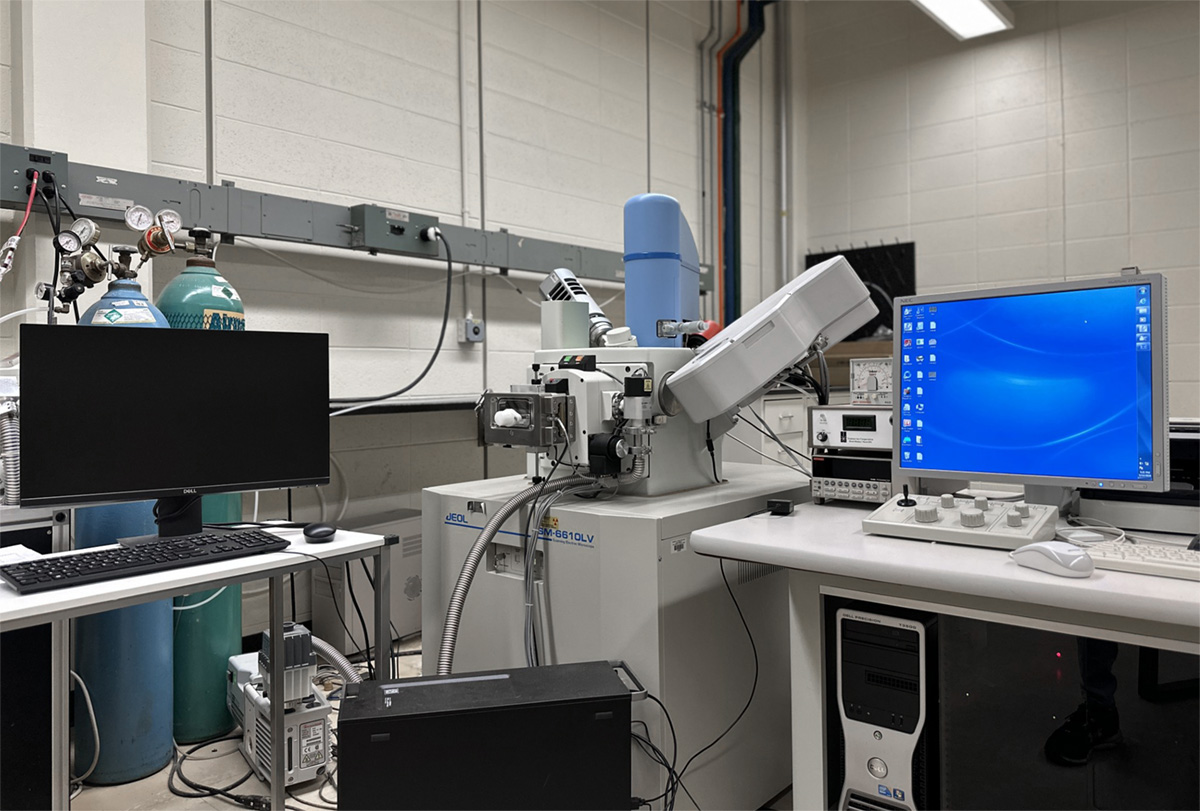
Rates
| Type | Academic rate | Industry rate |
|---|---|---|
| Training/staff-assisted measurements | $60/hr | $130/hr |
| Hourly service | $35/hr | $70/hr |
Contact information
Location
Physics Research Building, Room 024
Atomic Force Microscope and Fluorescent Microscope
This facility combines two microscopic techniques, atomic force microscopy (AFM) and fluorescent microscopy, using single-molecule imaging techniques with a total internal reflection fluorescent (TIRF) microscope. The advantage of this approach is the ability to image and localize hundreds of molecules (such as proteins) simultaneously, as well as to measure the force/stiffness of the sample.
The Bruker AFM can be used to image and measure shapes/sizes and stiffness for hard-matter samples, soft-matter samples and Biological samples. AFM can also be used in a magnetic force microscopy (MFM) mode (with a magnetic tip) to study magnetic materials, specifically thin films.
The cellTIRF® images single molecule proteins or fluorescent dyes using the TIRF mode. Individual laser lines optimize illumination depth and intensities, with this dual-view system imaging two colors simultaneously. The cellTIRF® can also perform fluorescent recovery after photobleaching (frap) imaging.
For biological samples, cell culture systems with CO2 incubators, centrifuges, water baths, fume-hood and refrigerators are available.
Atomic Force Microscope (AFM)
- Model: Bioscope Catalyst
- Company: Bruker
- Experimental mode: Tapping, contact, electrical and magnetic modes
- Available objective: 10x, 40x, 60x
- Imaging camera: CCD (model: Orca 05G), Hamamatsu
- Microscope: Inverted microscope IX81 OLYMPUS America
- Software: NanoScope
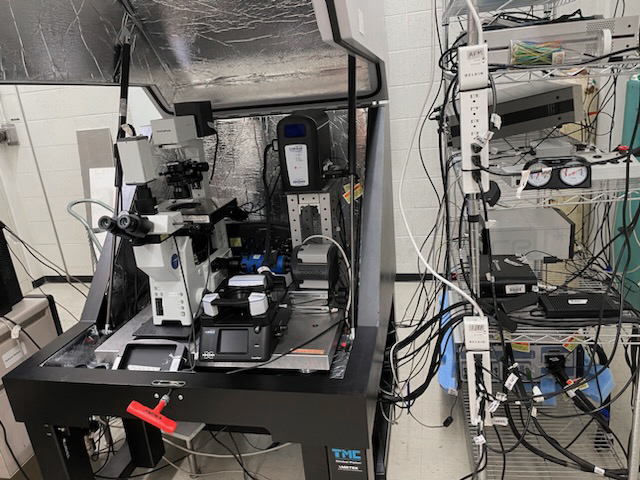
Total Internal Reflection Microscope (TIRF)
- Model: cellTIRF®
- Company: Olympus America
- Experimental mode: Fluorescent microscope, TIRF mode, FRAP
- Available objective: 10x, 40x, 60x
- LASER lines: 405, 488, 567, 633 nm
- Imaging camera: EM-CCD (model: Orca 05G), Hamamatsu
- Microscope: Inverted microscope IX81 OLYMPUS America
- Software: MetaMorph
- Dual Imaging system: Dual-view system for red and green fluorescent
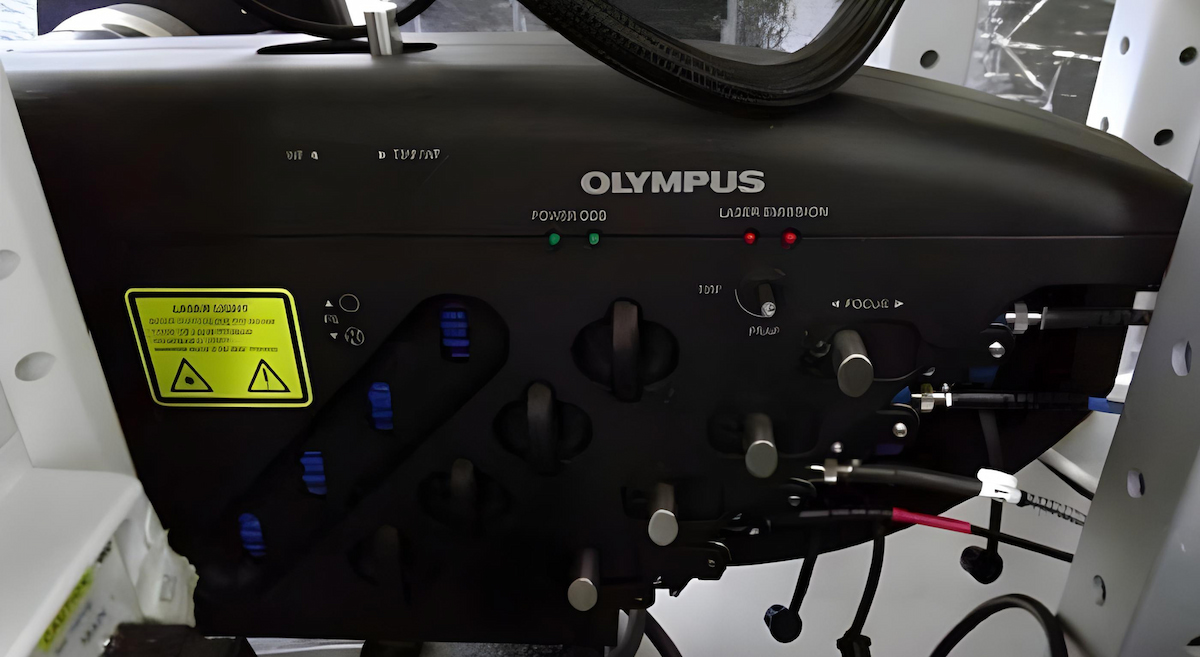
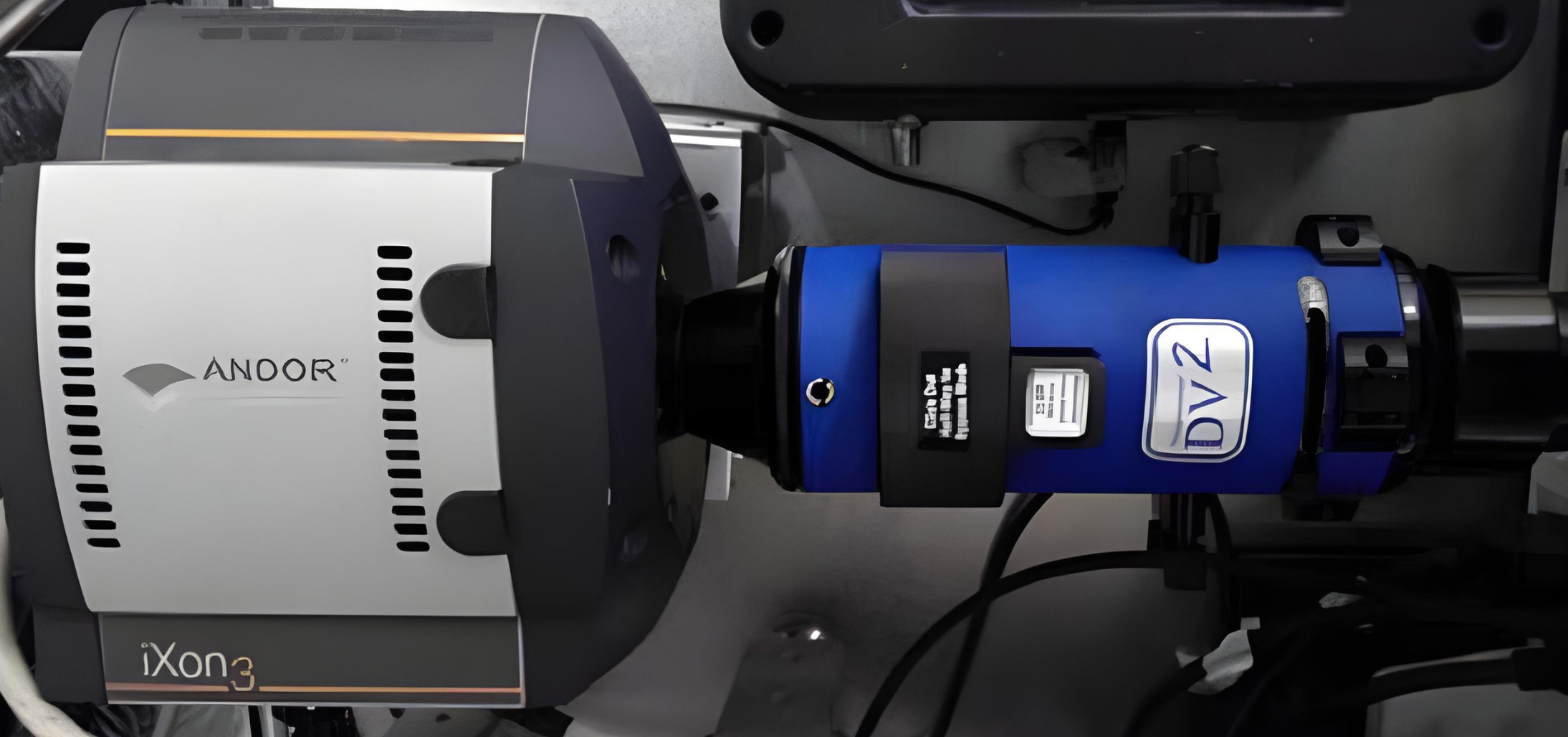
Rates
One-hour minimum.
| Type | Academic rate | Industry rate |
|---|---|---|
| Atomic Force Microscope (AFM) | $20/hr | $55/hr |
| Magnetic Force Microscope (MFM) | $20/hr | $55/hr |
| Total Internal Reflection Microscopy | $10/hr | $30/hr |
| AFM/TIRF | $30/hr | $80/hr |
Contact information
- Dr. Takeshi Sakamoto (AFM)
- Dr. Joseph Sklenar (MFM)
Electron Beam Evaporator
The electron beam is capable of depositing thin films of a wide range of metals, semiconductors and insulators.
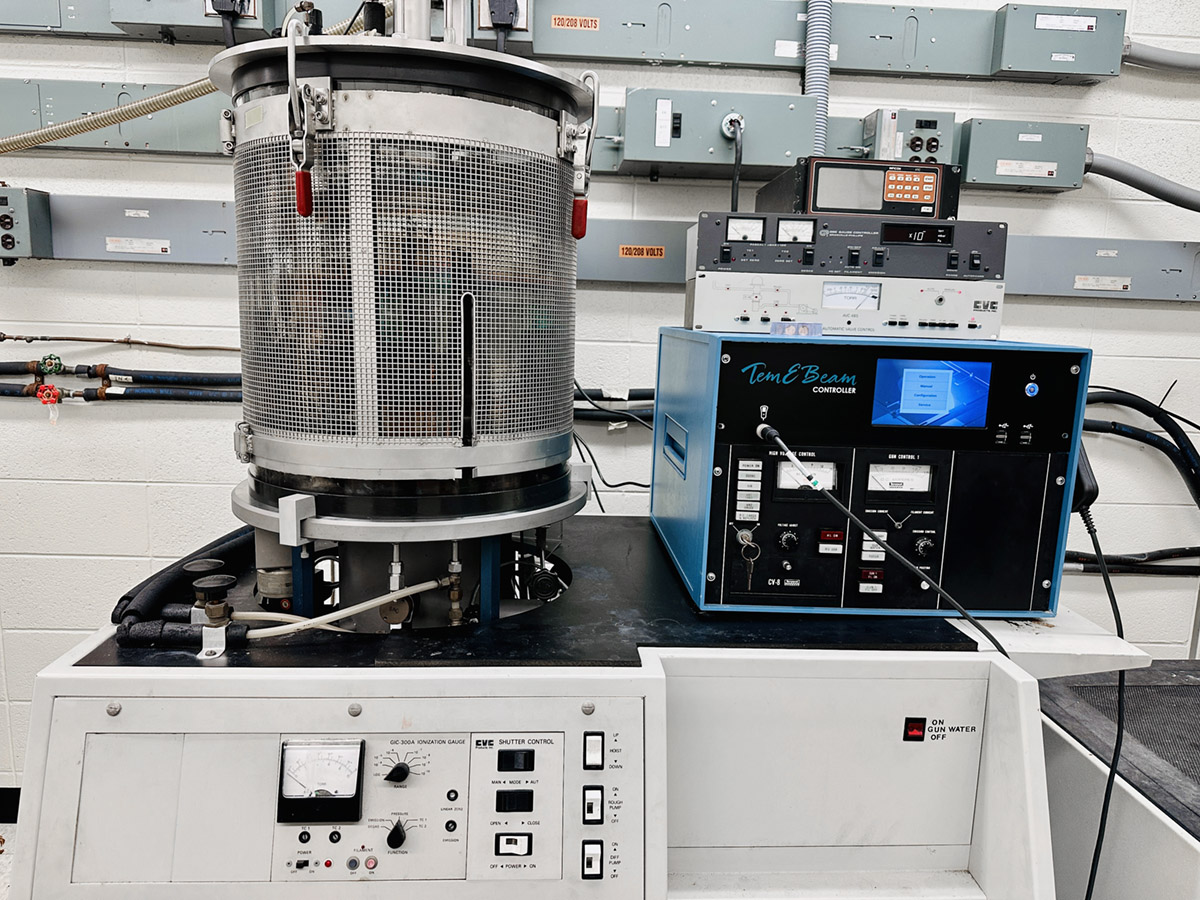
Rates
| Type | Academic rate | Industry rate |
|---|---|---|
| Training/staff-assisted measurements | $60/hr | $130/hr |
| Hourly service | $20/hr | $40/hr |
Contact information
Helium recovery system
Quantum Design ATL-150 and a Cryomech Purifier
A closed cycle with approximately 95% efficiency (consisting of a liquefier and purifier) provides liquid helium for the Physical Quantities Measurement Systems (PPMS) and other applications requiring LHe.
The system (liquefying up to 20 LHe per day) is set up to enable a closed cycle with two PPMS instruments.
